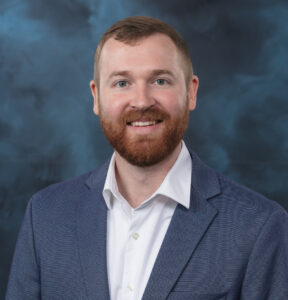Jordan Cannon earned his Doctor of Philosophy in Microbiology from the University of Tennessee, Knoxville, in May 2024. He previously received his bachelor’s degree in molecular and cellular biology from the University of Illinois at Urbana-Champaign in 2017. Jordan’s doctoral research focused on the identification, characterization, and protein engineering of bacterial enzymes capable of depolymerizing poly-L-lactic acid (PLLA). His work resulted in a diverse catalog of engineered enzymes with a potent ability to break down PLLA-based plastics. He plans to apply the enzyme technology developed during his doctoral studies to reduce plastic waste and promote a sustainable, circular economy for PLLA use.
Represented Organization

Circular Biosciences
Key Innovation
Circular Biosciences has developed a catalog of engineered protease enzymes capable of depolymerizing poly-L-lactic acid (PLLA) at ambient temperatures under mild reaction conditions. This enzymatic depolymerization offers a novel and sustainable approach to enable environmental biodegradation of PLLA, addressing one of the key limitations of this widely used bioplastic.
The company’s current objective is to engineer a catalog of highly potent PLLA-depolymerizing enzymes that can survive elevated temperatures for use in high-temperature applications. Circular Biosciences aims to engineer and immobilize enzymes that can be integrated directly into PLLA during the extrusion process. These enzymes would act as additives that enhance biodegradation of PLLA waste in landfills, home composting systems, or the natural environment if mismanaged. Collaboration with ORNL would help translate this enzyme technology into a viable commercial product.
Target Market
Poly-L-lactic acid (PLLA) is the most abundant and widely used bioplastic, with production projected to increase approximately five-fold over the next five years. Despite its potential as a sustainable material, PLLA has limited environmental biodegradability, and viable disposal solutions are lacking. It is not currently collected in postconsumer waste streams for recycling and is typically sent to landfills or composting facilities. However, many composting facilities, including those in Knoxville, prohibit bioplastics, leaving landfilling as the only end-of-life option.
Circular Biosciences targets manufacturers, recyclers, and sustainability-focused organizations seeking environmentally responsible end-of-life solutions for PLLA products. By enhancing biodegradation through enzyme-enabled materials, the company supports the growing bioplastics market while addressing the environmental and regulatory challenges associated with PLLA waste.
ORNL Principal Investigator
- Josh Michener - Senior R&D Staff, Synthetic Biology, Biological and Environmental Systems Sciences Directorate
- Yue Yuan - Distinguished Staff Fellowship Program, Macromolecular Nanomaterials, Physical Sciences Directorate
